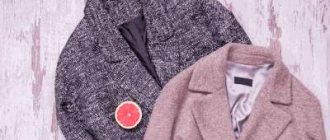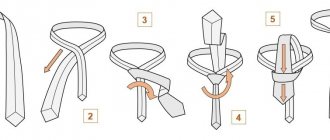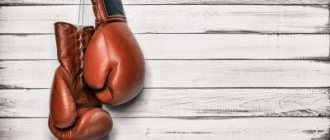Like other items of clothing, work pants, jackets or T-shirts require regular cleaning. Although washing workwear can be done at home, different types of soil require a special approach. Sometimes the robe requires professional cleaning. If work clothes are contaminated with solvents, paints, varnishes, oils, resins or chemicals, this can result in contaminated underwear. Therefore, washing such items at home should not be done together with other clothes. The performance of the washing machine is sometimes also often insufficient to remove fuel oil dirt or traces of petroleum products.
Frequency of washing workwear
The frequency of washing overalls by enterprise employees is determined by the specifics of the work. While the suit of a welder, auto mechanic, and Gazprom workwear requires weekly cleaning, employees of medical institutions, food establishments and similar enterprises need more frequent washing (the optimal period is every 3 days). The frequency of washing workwear is determined by sanitary and hygienic requirements.
Machine washable
For heavy soiling (e.g. oil and oil stains), it is recommended to wash it by hand with washing powder before washing it in the washing machine. Powder dosage – 40-60 g (2-3 tbsp) per 10 liters of water. The hotter the water, the greater the effect. Leave things soaked until the next day. If heavily soiled, items placed directly into the machine, as a result of dissolving oil stains, can form a greasy coating on the drum, and therefore negatively affect the washing of the next batch of laundry.
Expert opinion
Irina Kovtun
After manual pre-wash or for lightly soiled items, wash your laundry in a machine. Set the temperature to 60 °C.
Pay attention to how you place clothes in the machine. Various fasteners, rivets, metal objects, Velcro and other parts can damage clothing. Always zip up and check your pockets. Take clothes with leather elements to specialized laundries or dry cleaners.
Important! If you are going to machine wash a robe that is contaminated with fine sawdust particles, do not do it. Wood dust remains in the machine after washing and is difficult to remove. First, thoroughly shake out the overalls or vacuum them. Only then put it in the washing machine.
Wash by hand
Clothing, even overalls, must be kept clean. For example, with a reflective jacket it is a question of functionality. As for washing, including by hand, the most important principle is to pay enough attention to the information indicated on the tags present on each item. They contain maintenance recommendations, including washing temperature, resistance to bleaching, ironing and other procedures. If this information is not available, wash your clothes at 30°C. More durable materials, such as tarpaulin, can be washed at a higher temperature. The same applies to gastronomic workwear, where bleach is also used to maintain whiteness.
List of products that can remove fuel oil stains. How to wash fuel oil?
You can wash fuel oil with products that have properties that affect the dissolution of resins and oils. Such substances include ordinary acetone, ammonia, aviation gasoline, baking soda, and turpentine.
Before using a particular substance, it is necessary to determine its effect on a specific tissue. To do this, you need to know that cotton or wool will not withstand the effects of alkali. Artificial viscose or velor will not withstand contact with acids.
Alkaline agents include gasoline and acetone. Acids include ammonia and turpentine. Before using any substance, it is good to realize how deeply the fuel oil has penetrated into the clothing. Depending on the degree of contamination, select an action:
- place the entire thing in the solution;
- Moisten the item only partially with the desired product.
It is easier to wash fuel oil from the wrong side of clothes. Before using the product, it is better to test its effect on a separate section of fabric. Then carefully moisten the contaminated area.
To prevent stains from appearing on clothing, it is better to place a piece of clean fabric under it. Apply the product to the stain carefully. After the cleaning procedure, the item should be washed well. Stain powder and fabric softener will work for best results.
Rules and recommendations for washing on clothing labels
Each material from which workwear is made may have a different composition. If you want to maintain its functionality for as long as possible, follow the instructions on the label.
Wash
They are indicated by a basin. Inside the basin there is usually a number that determines the maximum water temperature. If a horizontal line is drawn under this symbol, this means that the material requires more careful handling. It is advisable to reduce the spin speed. If there are 2 horizontal lines, the fabric requires very careful handling, i.e. rinse and spin should be set to low, the item should not be spun by hand. Of course, this does not apply to overalls; they are made of durable materials.
Whitening
The triangle on the label symbolizes the recommended whitening method.
Drying
The square represents the air drying process. If there is a circle inside the square, the symbol suggests a tumble drying method.
Ironing
The iron symbol indicates that the fabric can be ironed. Inside it there are usually points that regulate the ironing temperature. The same points are usually present on the iron. Therefore, you do not need to remember the appropriate ironing temperature, you only need to know the number of points.
Dry cleaning
The circle indicates that the product needs to be professionally cleaned. The letters P and F in a circle represent the different solvents used in dry cleaning. The letter W stands for professional water cleaning.
The combination of individual icons determines how to care for the material. It is recommended to follow the manufacturer's recommendations to ensure that the fabric maintains good functionality over the long term.
Basic cleaning methods
Typically, fuel oil ends up on the clothes of boiler room workers, as well as those people who earn money by repairing cars at a service center, since such a substance is often used as a lubricant or fuel. It is obtained after oil refining, where kerosene and gasoline are removed from oil. If such a substance stains your clothes, then sometimes you have to say goodbye to them. But it is still possible to remove fuel oil in specific cases. To get rid of stains of this substance, you can take a solvent with the desired characteristics.
For example, it could be gasoline, since it, like fuel oil itself, was derived from oil. But at the same time, it is worth abandoning motor gasoline, which has some additives added. It is better to buy a higher quality product in the hardware department of the store. The process of removing fuel oil is simple:
- you need to take a cotton ball and soak it in gasoline;
- then wipe off the dirt;
- Once the cotton wool has become dark, it should be replaced.
If fuel oil gets on the entire fabric, you can soak it entirely in gasoline. Gasoline itself can also be purchased at the hardware store. Toluene will also help deal with fuel oil stains. It has high toxicity and is used to create varnish solvents. It is difficult to find in the store, but if you have access to fuels and lubricants, you can try to use it to get rid of such contaminants.
How to wash tarpaulin products?
Tarpaulin is a unique wear-resistant fabric used for sewing workwear, backpacks, awnings, canopies, and shelters for equipment. Subject to operating conditions, it can maintain quality characteristics for up to 50 years. This material has few disadvantages, one of them is increased roughness after getting wet, which prevents regular washing. However, there are a few secrets with which you can make things made from tarpaulin clean again.
Useful tips. What is the easiest way to remove fuel oil from clothes?
Taking into account the fact that fuel oil stains are difficult to remove, you must always be prepared for the fact that even after using all the methods, the stains will remain. For better results, some rules will help you.
- Before using your solution on clothing, test it on a small area of similar fabric.
- You need to be very careful when using acetone to clean any fabrics.
- The cleaning solution should be applied from the edge of the stain to the center. This will help avoid streaks on the fabric.
- If solvents are used for cleaning, use rubber gloves to apply them.
- To avoid leaving an outline of the stain on the fabric, apply the solvent, touching a little on the area near the stain.
- If gasoline or alcohol is used to remove fuel oil stains, you need to dry the treated item as far as possible from open fire.
- To prevent the fuel oil stain from remaining on another part of the clothing, a clean, dense cloth should be placed under it.
If all the above procedures did not help, and the stain still does not come out, it is better to take the clothes to the dry cleaner.
There, specialists use special products that are not widely available. Professional equipment is also used to remove stains. Dry cleaning will return your clothes to their original appearance.
Bulat and Basalt models
The Bulat welding suit model is equipped with a jacket and trousers.
Material composition: linen 49% and cotton 51%. The fabric density is 550g/m2, impregnated with fire-resistant compounds. Fastens with hidden buttons.
The suit has a turn-down collar and protective cuffs. Pockets are located in the side seams of the trousers and inside the jacket. Ventilation holes are located in the armholes.
When leaving, washing is not allowed. Dry cleaning is allowed, but only without the use of tetrachlorethylene.
The Basalt suit consists of a jacket and trousers. Material: 100% leather (split leather). The suit is fastened with secretly sewn buttons.
Turn-down collar. Side pockets are located at the bottom of the jacket, and a patch pocket is located inside it.
Ventilation holes are located in the armhole area. The suit color is black. When leaving, washing the suit is not allowed. Dry cleaning is allowed, but only with the use of mild solvents.
Selection of material for gaiter
The first question that a novice welder faces is what material should he choose from? Indeed, modern stores amaze with the abundance of choice, but not all options are able to perform equally well in their work.
One of the worst materials in this case is tarpaulin . It is not recommended to even consider it. The fact is that canvas leggings will burn out very quickly, and you risk getting serious burns in them. The maximum that can be done with such gloves is to help the welder without getting too close to the process itself. Also, welder's gaiters made of neoprene or suede are considered not reliable enough .
A more optimal option is felt leggings . They are, of course, much more reliable than canvas ones, but they are also not the best option. In any case, no matter which of the above options you choose, special impregnation of the leggings is very important. Be sure to pay attention to her.
The best material for welder's gloves is split wood . It is a specially treated leather that is coated with a reliable protective compound. The skin can be either pork or beef. This factor does not play a special role. This material is incredibly resistant to fire and protects the welder's hands well. We'll talk about the benefits of split leather in more detail below. To ensure that welding gaiters fit well on your hands and do not cause discomfort, they most often have a gasket inside. The optimal lining option is the most common cotton.
If you plan to do welding work in winter, then be sure to give preference to insulated gloves. A natural fur lining will best warm your hands and prevent them from frostbite at sub-zero temperatures.
Advantages of welding gauntlets made of split leather
As mentioned above, the best option for sewing welder's leggings is split wood. Let's look at all its advantages:
- The most important advantage that plays a critical role in welding is, of course, fire resistance. There is literally no equal in this split.
- In addition, this material is very durable. It is quite difficult to damage, so during work you should not worry that the leggings will break at the most inopportune moment.
- Split wood is very resistant not only to tears, but also to punctures and cuts. Considering that the welding process can take place under different conditions, this point is extremely important.
- Time is not the enemy of split leather. You can wear your leggings made of this material as long as you need, they wear out very slowly.
- And finally, split leather is resistant to moisture. If you accidentally wet your gloves while working, it will not harm them.











